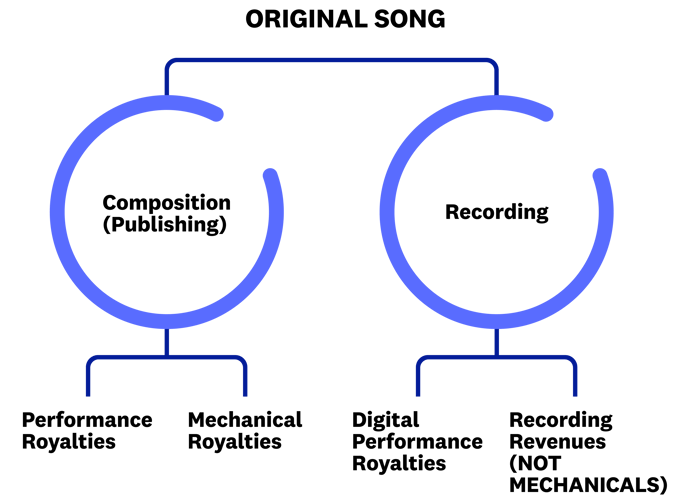What is the Difference Between Sound Recordings and Music Publishing?
Every song has two sides: the recording and the composition.
Sound recordings refer to performances that can be played back or reproduced. You can earn money off them by selling physical recordings at shows; using an online aggregator like CD Baby to distribute songs on digital platforms (iTunes, Spotify, Apple Music); or signing a deal with a label that will help manufacture and distribute recordings on your behalf.
The underlying composition of a recording — its music and lyrics — is closely aligned with music publishing, i.e. the money you make when other individuals or groups use music you wrote (the “composition”). This includes a record company reproducing your music (mechanical royalties); a radio station, website, or restaurant playing your music publicly (performance royalties); or a producer using your music in a movie or television show (sync royalties).
Streaming is unique in that it earns both mechanical and performance royalties. Check out a detailed breakdown of how streaming royalties work via our Spotify case study here.

Interested in learning more? Check out our blog post on the difference between Music Publishing and Distribution.
Want to keep up with Songtrust for frequent music and publishing updates?
Follow us @songtrust
Subscribe to our Newsletter
Visit the Songtrust Blog